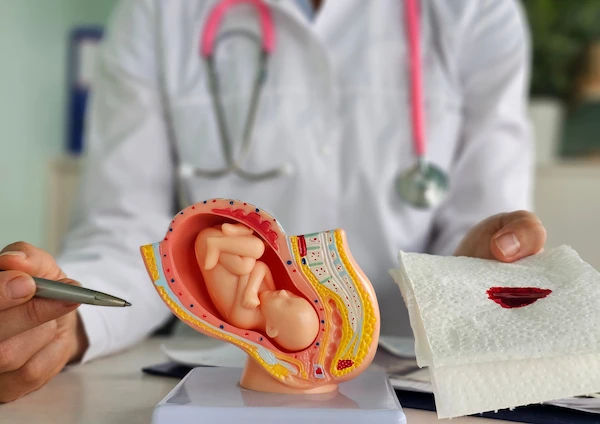- female
- 60 Years
- 01/04/2021
Can you push a prolapse back into place?
Answered by 1 Apollo Doctors
yes you can push it back up with your fingers
Dr. Mubarak Suggests...
Consult a Obstetrician and Gynaecologist
Answered 04/07/2025
0
0

More Obstetrics & Gynaecology Health Queries
View allIs it normal to have irregular periods?
No, irregular periods are always due to some underlying conditions such as stress, weight gain or loss, uterine polyp or fibroid, endometriosis, pelvic inflammatory disease, PCOS, premature ovarian insufficiency, thyroid disorder.
read more![Doctor 1]()
![Doctor 2]()
Answered by 1 Apollo Doctors
I'm worried about whether I could get pregnant from a recent sexual experience with my boyfriend. I kissed his penis, and then we kissed on the lips, and he later kissed my vagina. Could any of this result in pregnancy?
It is highly unlikely that you will get pregnant in such a scenario.
read more![Doctor 1]()
![Doctor 2]()
Answered by 1 Apollo Doctors
I have fibroids one outside the uterine wall and three inside the uterus but outside the cavity. Two are quite large, so my doctor suggested laparoscopy surgery. Can you explain how this procedure works? Is it similar to a C-section where the uterus is stitched, and could it affect my fertility in the future?
myomectomy,gynaec rw.
read more![Doctor 1]()
![Doctor 2]()
Answered by 1 Apollo Doctors
Disclaimer: Answers on Apollo 247 are not intended to replace your doctor advice. Always seek help of a professional doctor in case of an medical emergency or ailment.





